After the R&D department was completely reorganized, will Song Hanming become the 'last factory director' of Dongfeng Peugeot Citroen Automobile Company (DPCA)?
![]() 11/27 2024
11/27 2024
![]() 526
526
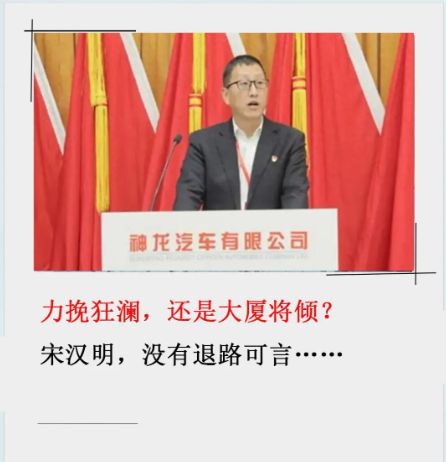
"Old times, the swallows flew into the homes of ordinary people." This line from Liu Yuxi, a Tang Dynasty poet, aptly describes how DPCA's Fukang sedan helped bring cars into Chinese households.
In addition to Fukang, which is renowned alongside Santana and Jetta as one of the 'Three Old Cars' of China.
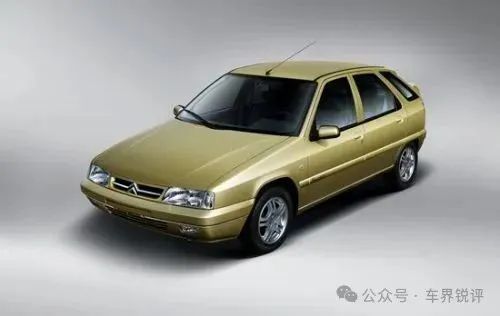
In the past 32 years, every decade has seen DPCA impress the public with one or more models: the Fukang in the 1990s, the Elysee and 307 in the 2000s, the C4 World Rally Car, C5, and 308 in the 2010s, and now the Citroen C5 Aircross and Peugeot 5008, among others.
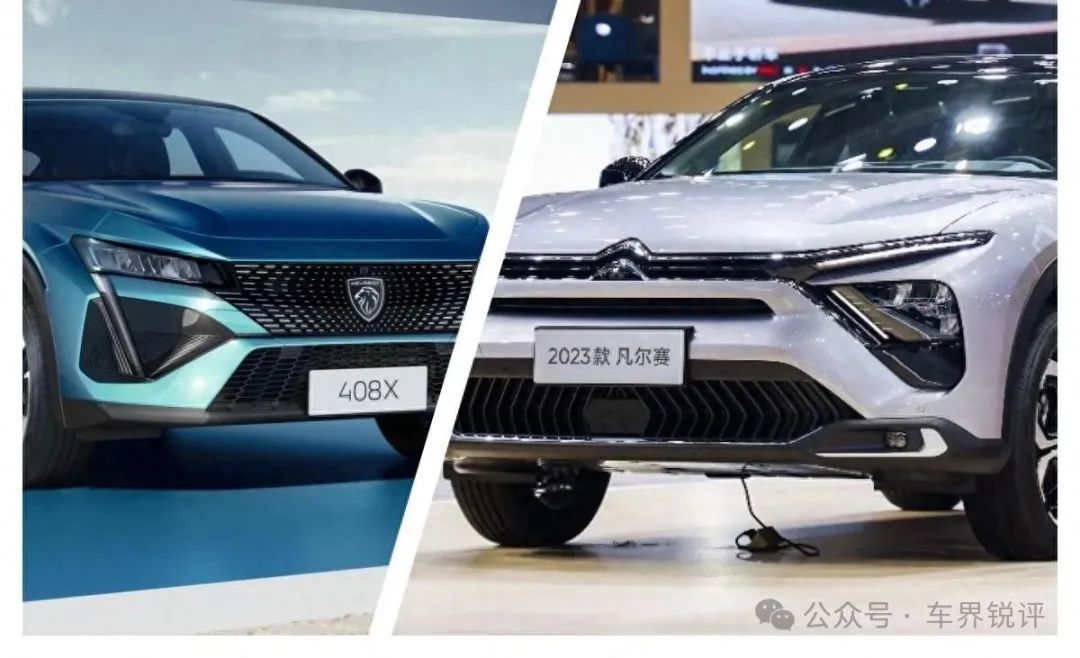
This exemplary Sino-French collaboration has now descended to selling land and factories, being shunned by both shareholders, and being pushed back and forth in an attempt to 'package' light assets.
An insider recently revealed that its R&D center has also been completely reorganized!
According to an informed source, he was having tea with a friend from Dongfeng headquarters over the weekend when they discussed the current state of DPCA. They discovered that all 100-200 employees of DPCA's Technology Center have been transferred to Dongfeng's R&D Institute.
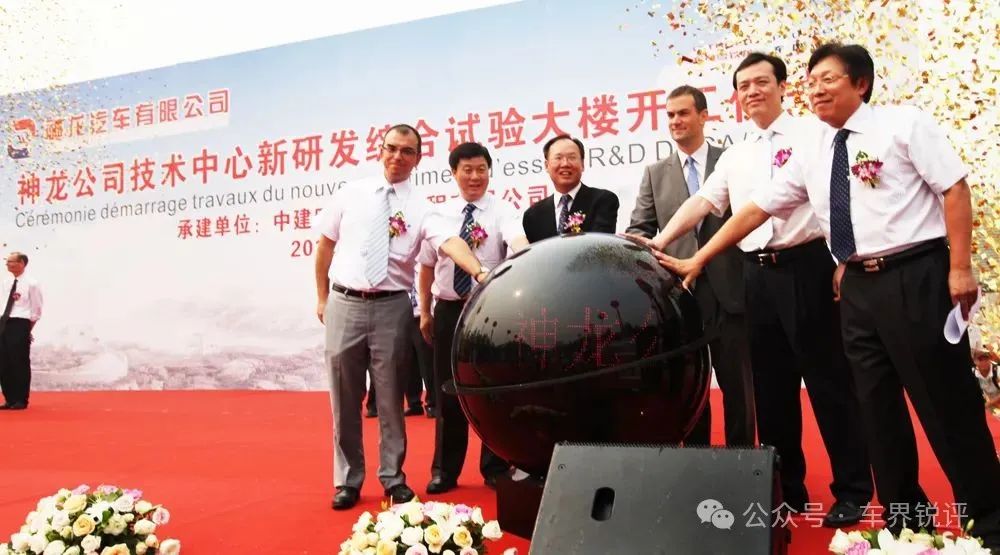
Some netizens may ask, isn't this a good thing?
After all, DPCA is barely surviving and doesn't have many projects to work on.
However, the outcome is not so rosy.
According to transferred employees, with the exception of a few individuals with connections or backgrounds who can maintain their positions, salaries, and benefits, the vast majority of transferred employees have experienced demotions and salary reductions to varying degrees.
However, Cheng Jun, the deputy general manager in charge of technology and director of the Technology Center, was transferred on an equal footing to serve as a member of the Party Committee and deputy dean of Dongfeng's R&D Institute. He remains an A-level executive deputy cadre directly managed by Dongfeng Motor Corporation, with an administrative level comparable to that of a deputy director at the department level.
Other middle and grassroots cadres, as well as ordinary engineering and technical personnel, were not as fortunate as Cheng Jun. Employees with less than 10 years of work experience who transfer to Dongfeng's R&D Institute are generally assigned to the S1 level, or responsibility engineer. Employees with more than 10 years of work experience are typically assigned to the S2 level at most, which is the supervisor engineer level. Very few are assigned to the S3 (chief engineer) or S4 (deputy chief engineer, chief engineer) levels.
Ordinary engineers without positions have experienced even greater salary reductions.
Even more unfortunate are the middle and grassroots cadres who were previously department heads or ministers at DPCA. A large number of department heads who transferred to Dongfeng's R&D Institute were not assigned to equivalent-level room managers (positive section-level), and a considerable number of ministers were not assigned to equivalent-level department directors. Most were only assigned an S3 or S4 rank.
As for the factories, the Chengdu plant is still producing Peugeot and Citroen brand models as normal.
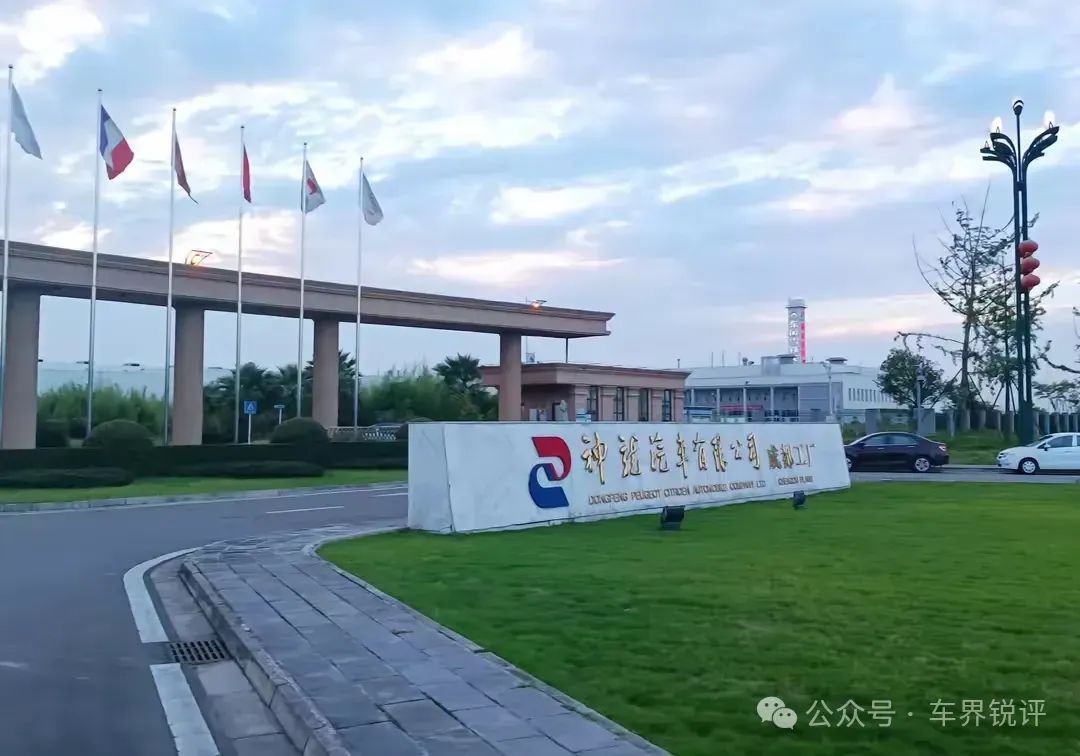
The Wuhan plant, however, has completely stopped production and will instead manufacture an electric vehicle model code-named S32 under contract manufacturing.
It is speculated to be a sister model of Dongfeng Nano EV S31, as Dongfeng Nano EV's model code is S31.
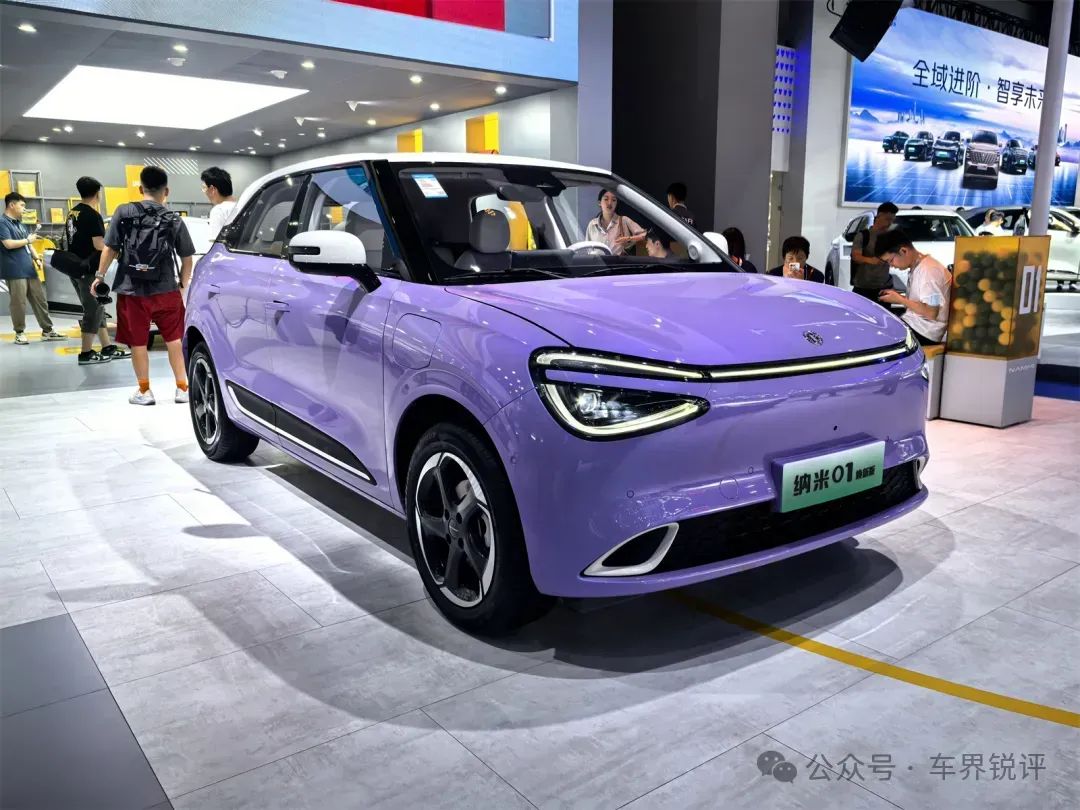
It is said that some staff from the Wuhan plant have been redistributed to Dongfeng's passenger vehicle manufacturing headquarters, with demotions and salary reductions being inevitable.
The remaining employees who remain at the Wuhan plant have had their salaries fully paid by Dongfeng Motor Corporation, indicating that the Stellantis Group is likely to completely abandon the Wuhan plant.
In fact, there have been signs pointing to DPCA's current predicament.
From January to October this year, sales amounted to 56,528 units. With 83% of the year having passed, sales are only 70% of last year's figures, with approximately 65,000 vehicles expected to be sold this year. This is the combined sales figure for two brands, making the sales volume for each individual model and brand pitifully low.
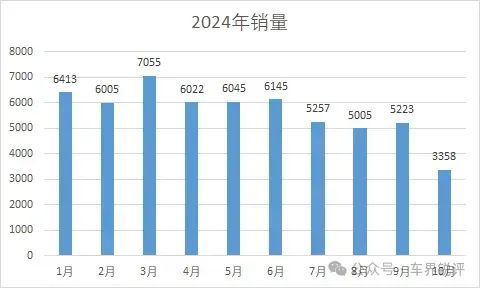
Data source: Autohome
Another frustrating aspect is the attitude of the French side. On the one hand, they have made it clear that there will be no new funding or models for DPCA. The situation is even more dire during the sales decline, as they are vigorously promoting a light asset model to reduce financial burdens in China.
Without products, there are no sales; without sales, there is no sufficient operating capital. Does this bode well for DPCA's future?
Even more galling is that the Stellantis Group has chosen to cooperate deeply with emerging automakers in the Chinese market by investing in Leap Motor and providing resources for Leap Motor's expansion into Europe. At a communication meeting, Carlos Tavares, CEO of the Stellantis Group, even appeared to support the new company. However, his tenure as chairman is also coming to an end.
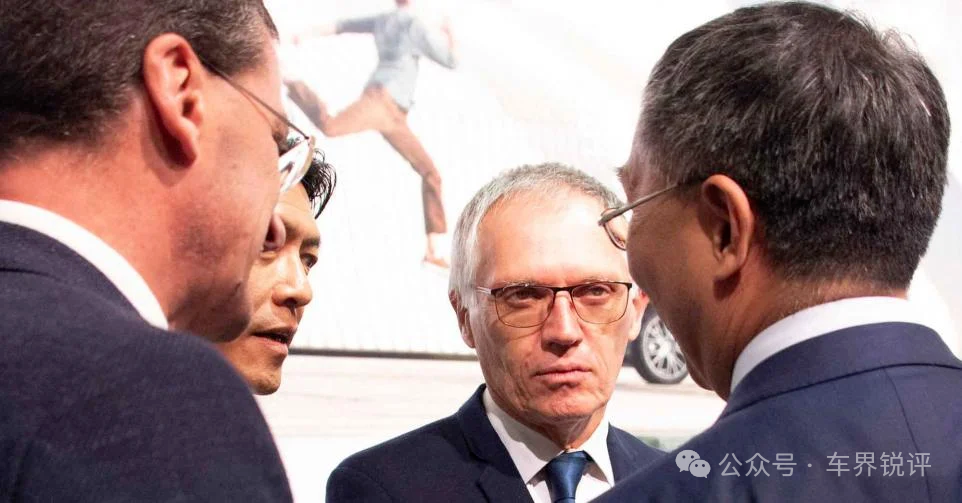
The intention to abandon DPCA is quite evident.
Given Song Hanming's modest abilities, even if he assumes the roles of Party secretary, discipline inspection commission secretary, chairman of the labor union, and general manager, can he turn the tide and return DPCA to its former glory amid internal and external difficulties? Especially when Chen Bin, his predecessor, was unable to revive DPCA?
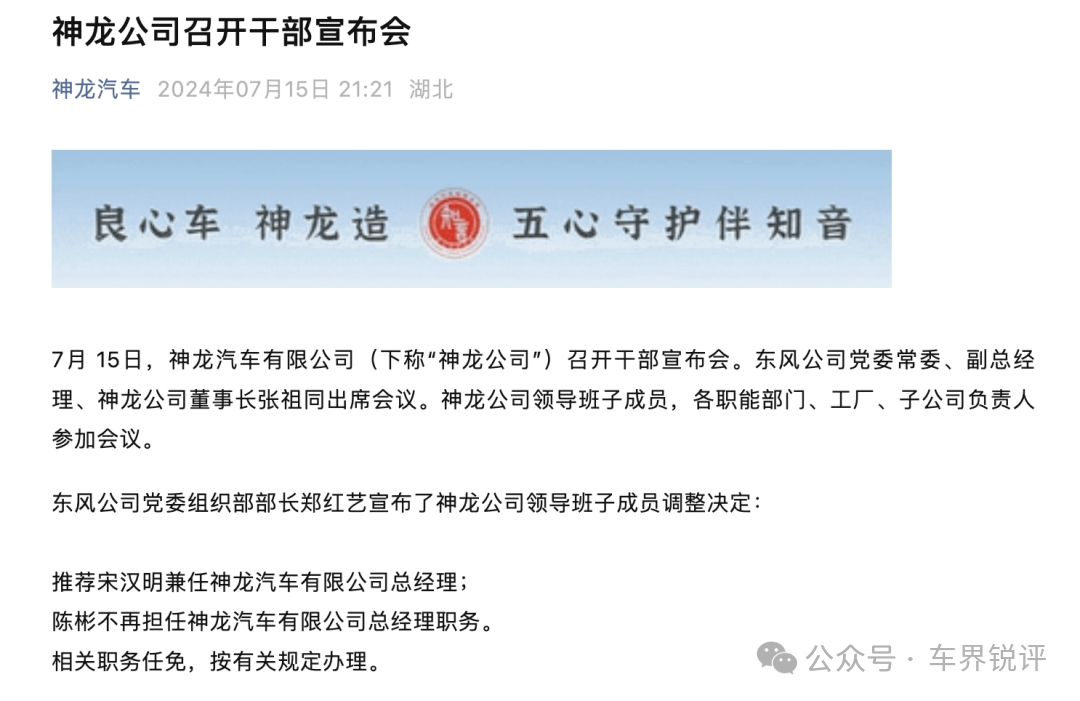
Perhaps Song Hanming's arrival is a reluctant measure due to the lack of other viable options for DPCA.
It feels like his primary task is not to sell cars but to stabilize the current situation, implement Dongfeng Group's strategy, and prioritize mergers and optimizations during his tenure. Should anything go wrong, becoming the 'last factory director' of DPCA may be his ultimate fate. Do you agree? We welcome comments and discussions from netizens.








